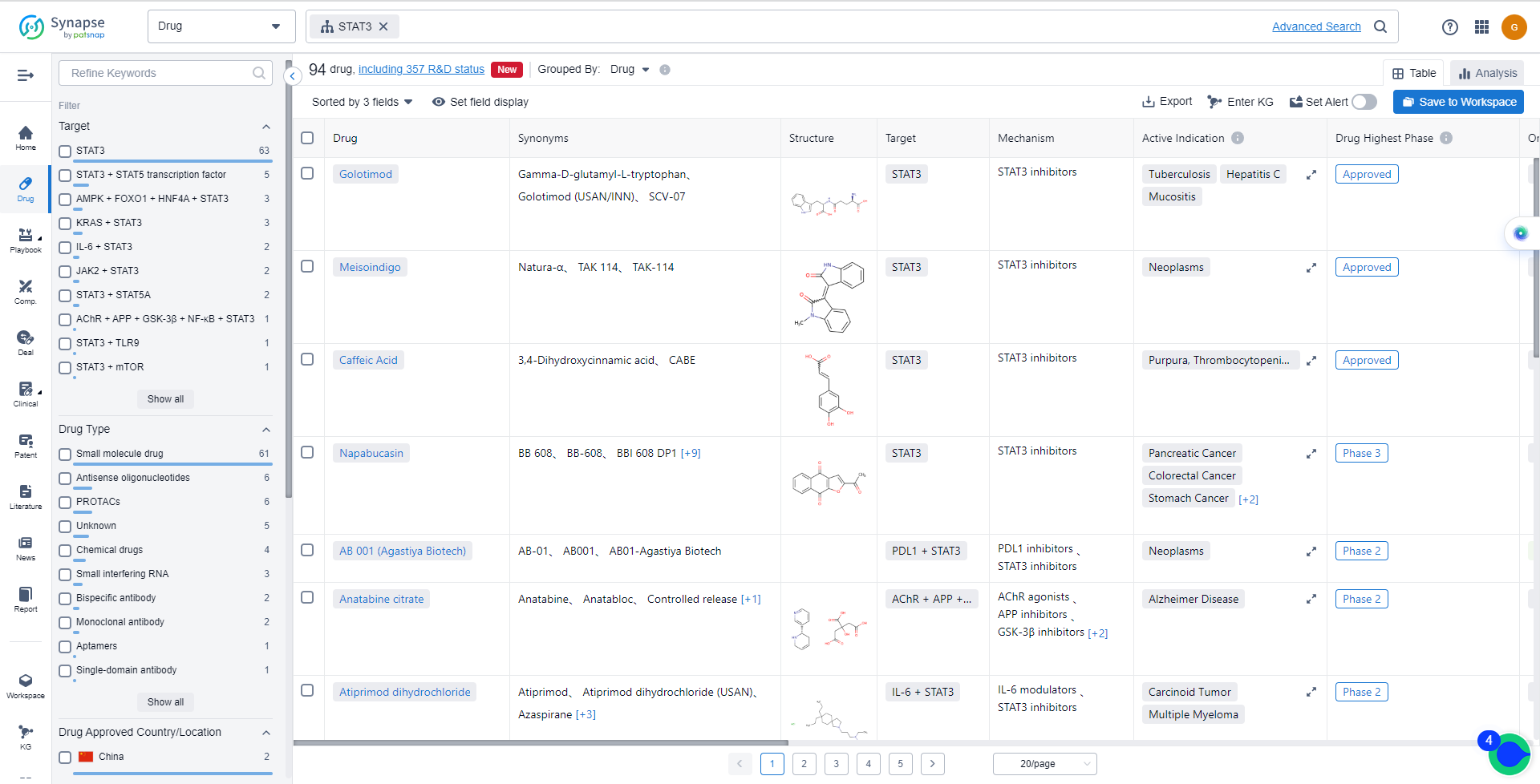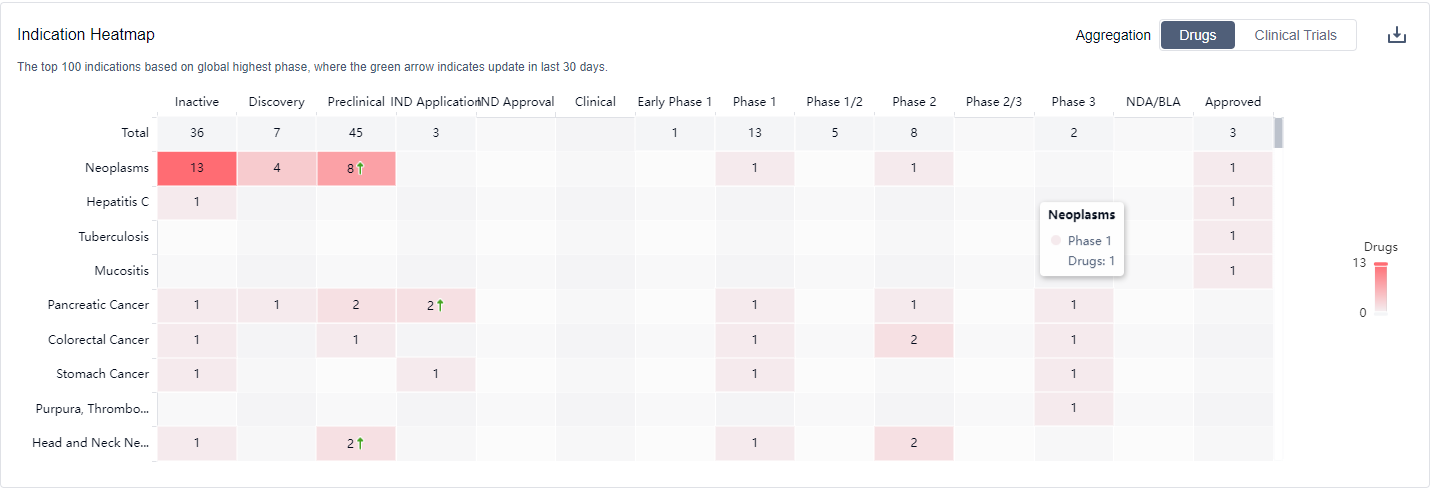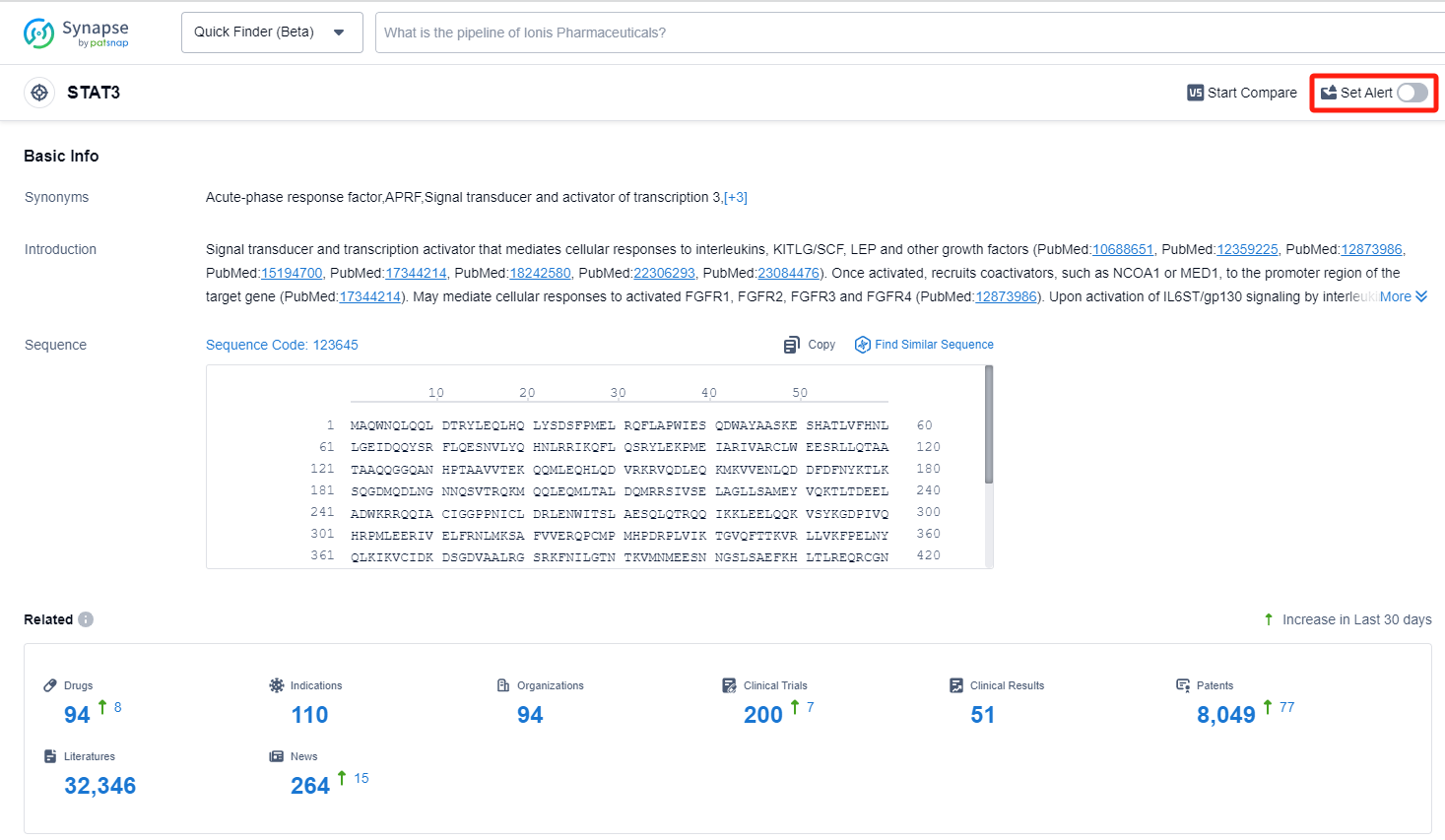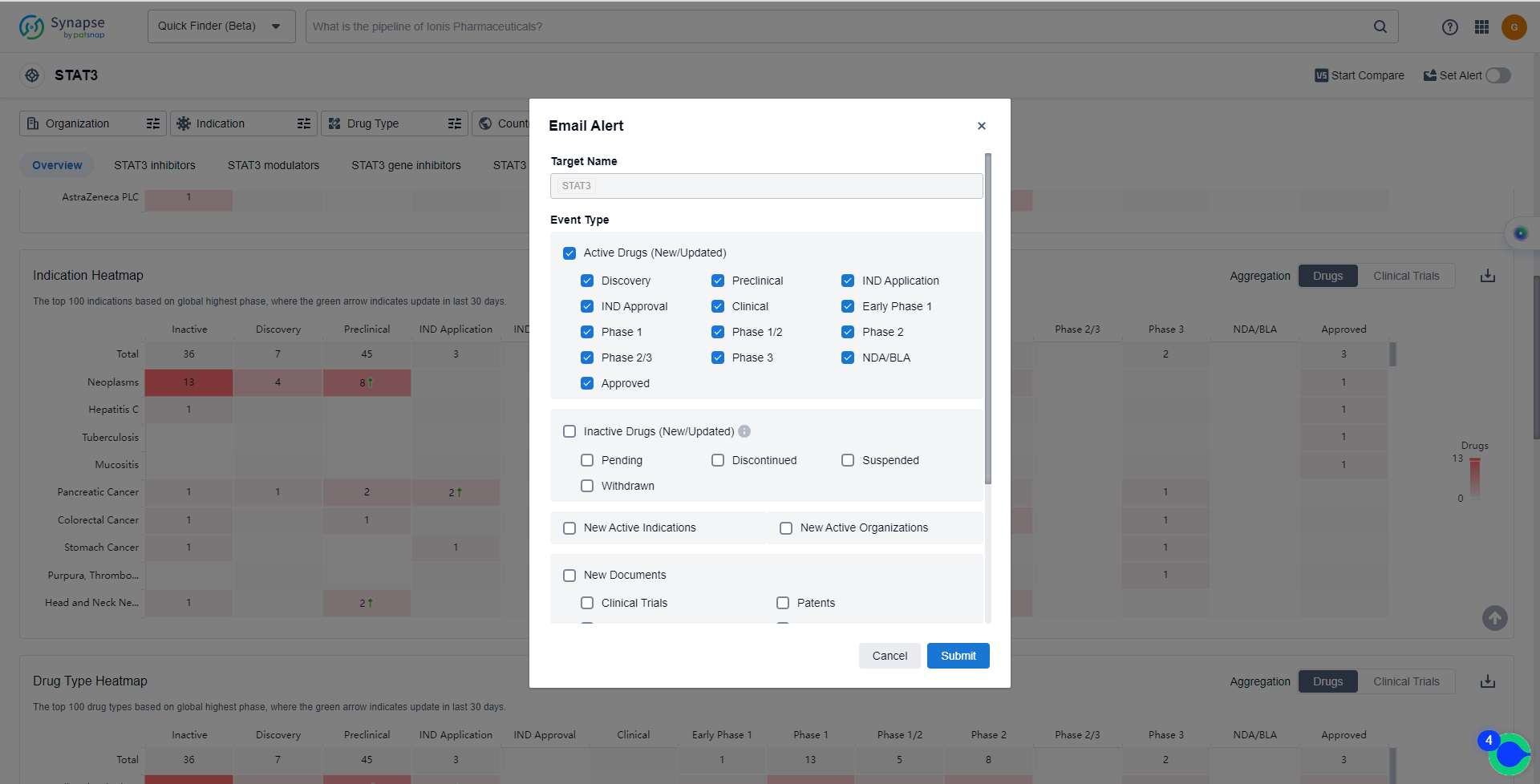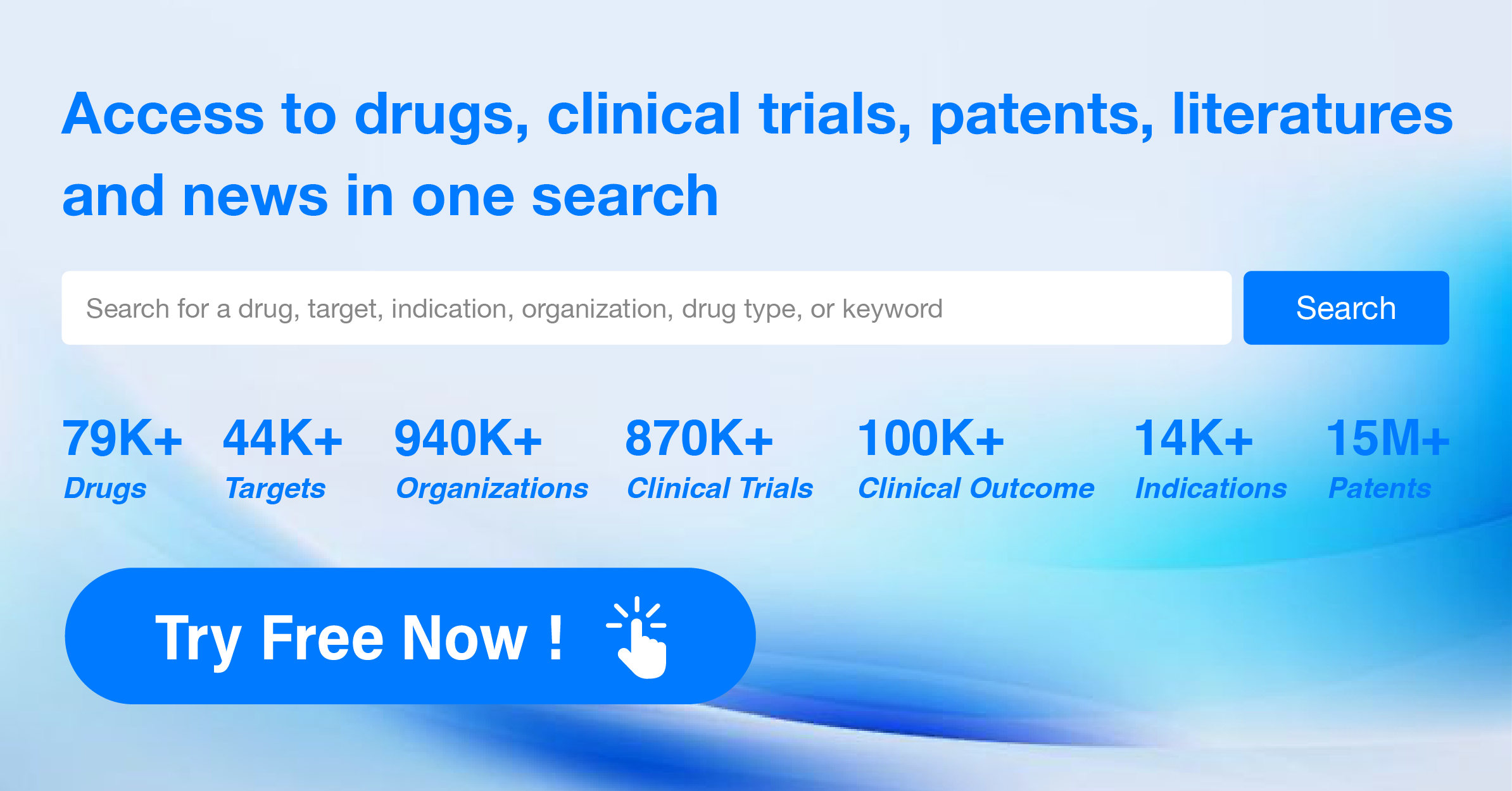Understanding STAT3 Inhibitors and Methods to Keep Abreast of Their Recent Developments
STAT3 (Signal Transducer and Activator of Transcription 3) is a crucial protein involved in various cellular processes in the human body. It plays a significant role in regulating gene expression, cell growth, differentiation, and survival. STAT3 is activated by various cytokines and growth factors, and upon activation, it translocates to the nucleus and binds to specific DNA sequences, initiating the transcription of target genes. Dysregulation of STAT3 signaling has been implicated in numerous diseases, including cancer, autoimmune disorders, and inflammatory conditions. Understanding the role of STAT3 provides valuable insights into the development of targeted therapies for these diseases.
STAT3 is an important transcription factor involved in various biological functions, including cell proliferation, survival, apoptosis, and inflammation. Abnormal activation of STAT3 can induce the occurrence and development of tumors. Targeting STAT3, either by blocking upstream signaling pathways to indirectly inhibit STAT3, or by using peptides, oligonucleotides, and small molecules to directly inhibit STAT3, are strategies that interfere with the phosphorylation of STAT3 to prevent the formation of functional STAT3 dimers and affect tumor occurrence and development. So far, many STAT3 inhibitors have achieved very significant effects in in vitro and in vivo experiments, and some inhibitors have already started clinical trials. Given the key role of STAT3 in the occurrence and development of tumors, drug development targeting STAT3 has become one of the major drug research hotspots in the past two decades. Many compounds have been reported to have inhibitory activity on STAT3-related pathways, many drugs have entered the clinic, and indications include liver cancer, colorectal cancer, melanoma, leukemia, and other diseases.
The analysis of the current competitive landscape and future development of target STAT3 reveals a significant focus on this target by various companies in the pharmaceutical industry. Companies like Verta, Inc., Beijing Union Pharmaceutical Factory, 1globe Biomedical Co Ltd, and Pharmaceutics International, Inc. are at the forefront of development, with drugs in approved and advanced stages. The indications for drugs targeting STAT3 cover a wide range of diseases, indicating the potential for therapeutic applications. Small molecule drugs dominate the development landscape, indicating intense competition around innovative drugs. China, the United States, and other countries/locations are actively involved in the development of drugs targeting STAT3, showcasing a global interest in this target. Overall, the future development of target STAT3 holds promise for the pharmaceutical industry, with potential breakthroughs in the treatment of various diseases.
How do they work?
From a biomedical perspective, STAT3 inhibitors are a type of drugs that target and inhibit the activity of the STAT3 protein. STAT3 (Signal Transducer and Activator of Transcription 3) is a transcription factor that plays a crucial role in various cellular processes, including cell growth, differentiation, and survival. Abnormal activation of STAT3 has been implicated in the development and progression of several diseases, including cancer.
STAT3 inhibitors work by blocking the activation or signaling pathway of STAT3, thereby preventing its function and downstream effects. By inhibiting STAT3, these drugs can potentially disrupt the growth and survival of cancer cells, making them a promising therapeutic approach for cancer treatment. Additionally, STAT3 inhibitors may also have applications in the treatment of other diseases where STAT3 dysregulation is involved, such as autoimmune disorders and inflammatory conditions.
It's important to note that STAT3 inhibitors are still under investigation and development, and their clinical efficacy and safety profiles are being evaluated through preclinical and clinical trials.
List of STAT3 Inhibitors
The currently marketed STAT3 inhibitors include:
- Golotimod
- Meisoindigo
- Caffeic Acid
- Napabucasin
- AB 001 (Agastiya Biotech)
- Anatabine citrate
- Atiprimod dihydrochloride
- C-188-9
- Danvatirsen
- GLG-801
For more information, please click on the image below.
What are STAT3 inhibitors used for?
STAT3 inhibitors are under investigation for indications include liver cancer, colorectal cancer, melanoma, leukemia, and other diseases. For more information, please click on the image below to log in and search.
How to obtain the latest development progress of STAT3 inhibitors?
In the Synapse database, you can keep abreast of the latest research and development advances of STAT3 inhibitors anywhere and anytime, daily or weekly, through the "Set Alert" function. Click on the image below to embark on a brand new journey of drug discovery!
